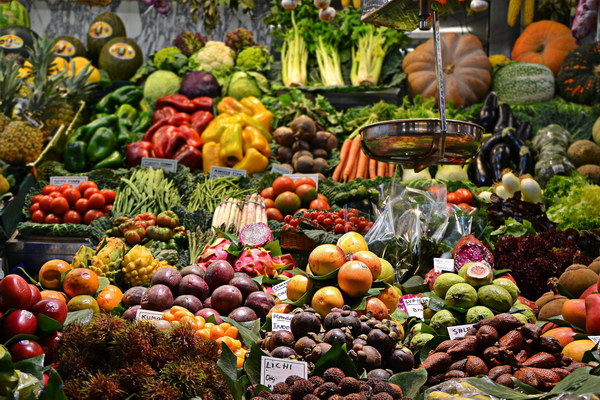How to Choose Foods for Better Stomach Health A Comprehensive Guide
Introduction:
Eating is an essential part of our daily lives, but it's important to understand that not all foods are beneficial for our stomach health. In this article, we will discuss how to compare and choose foods that can help nourish and protect your stomach. By making informed decisions about what you eat, you can improve your digestive health and prevent common stomach issues.
1. The Importance of a Balanced Diet:
A balanced diet is crucial for maintaining good stomach health. It ensures that you receive a variety of essential nutrients, such as vitamins, minerals, and fiber, which can help keep your stomach healthy and functioning properly.
2. High-Fiber Foods:
Fiber is a key component of a stomach-friendly diet, as it aids in digestion and prevents constipation. Some high-fiber foods that are beneficial for your stomach include:
- Berries: Blueberries, raspberries, and strawberries are high in fiber and antioxidants, which can help reduce inflammation in the stomach.
- Apples: Apples contain both soluble and insoluble fiber, which can help maintain a healthy gut flora and improve digestion.
- Leafy Greens: Spinach, kale, and Swiss chard are rich in fiber, vitamins, and minerals, making them excellent choices for a stomach-friendly diet.

3. Probiotic-Rich Foods:
Probiotics are beneficial bacteria that can help maintain a healthy gut flora. Incorporating probiotic-rich foods into your diet can improve your stomach health. Some examples include:
- Yogurt: Look for plain, unsweetened yogurt with live and active cultures.
- Kefir: Kefir is a fermented milk drink that contains probiotics and can help improve digestion.
- Sauerkraut: Fermented cabbage, sauerkraut is rich in probiotics and can aid in digestion.
4. Easy-to-Digest Foods:
If you have a sensitive stomach or are experiencing digestive issues, it's best to opt for easy-to-digest foods. Some examples include:
- Bananas: Bananas are high in potassium and contain a natural antacid, making them gentle on the stomach.
- Rice: Rice is a starchy food that is easy to digest and can help soothe an upset stomach.
- Oatmeal: Oatmeal is a whole grain that is rich in fiber and can help regulate digestion.
5. Avoiding Irritants:
Certain foods can irritate your stomach and exacerbate digestive issues. It's best to minimize or avoid these foods, such as:
- Spicy Foods: Spicy foods can irritate the stomach lining and lead to discomfort.
- Fatty Foods: High-fat foods can be difficult to digest and may lead to stomach pain or bloating.
- Carbonated Drinks: Carbonated beverages can increase stomach acid production and cause discomfort.
Conclusion:
Choosing the right foods is crucial for maintaining a healthy stomach. By incorporating high-fiber, probiotic-rich, and easy-to-digest foods into your diet while avoiding irritants, you can improve your stomach health and prevent common digestive issues. Remember, it's always best to consult with a healthcare professional before making significant changes to your diet.









